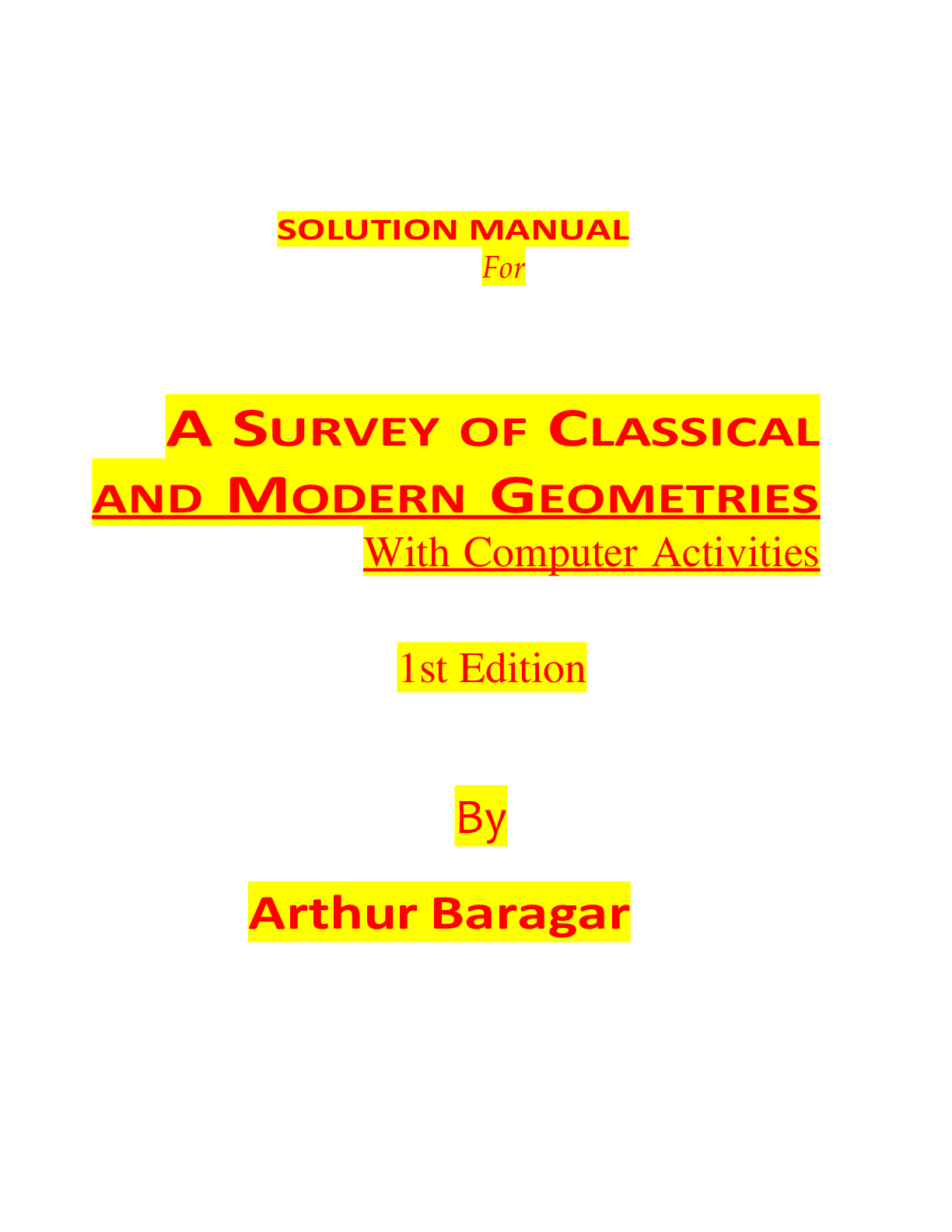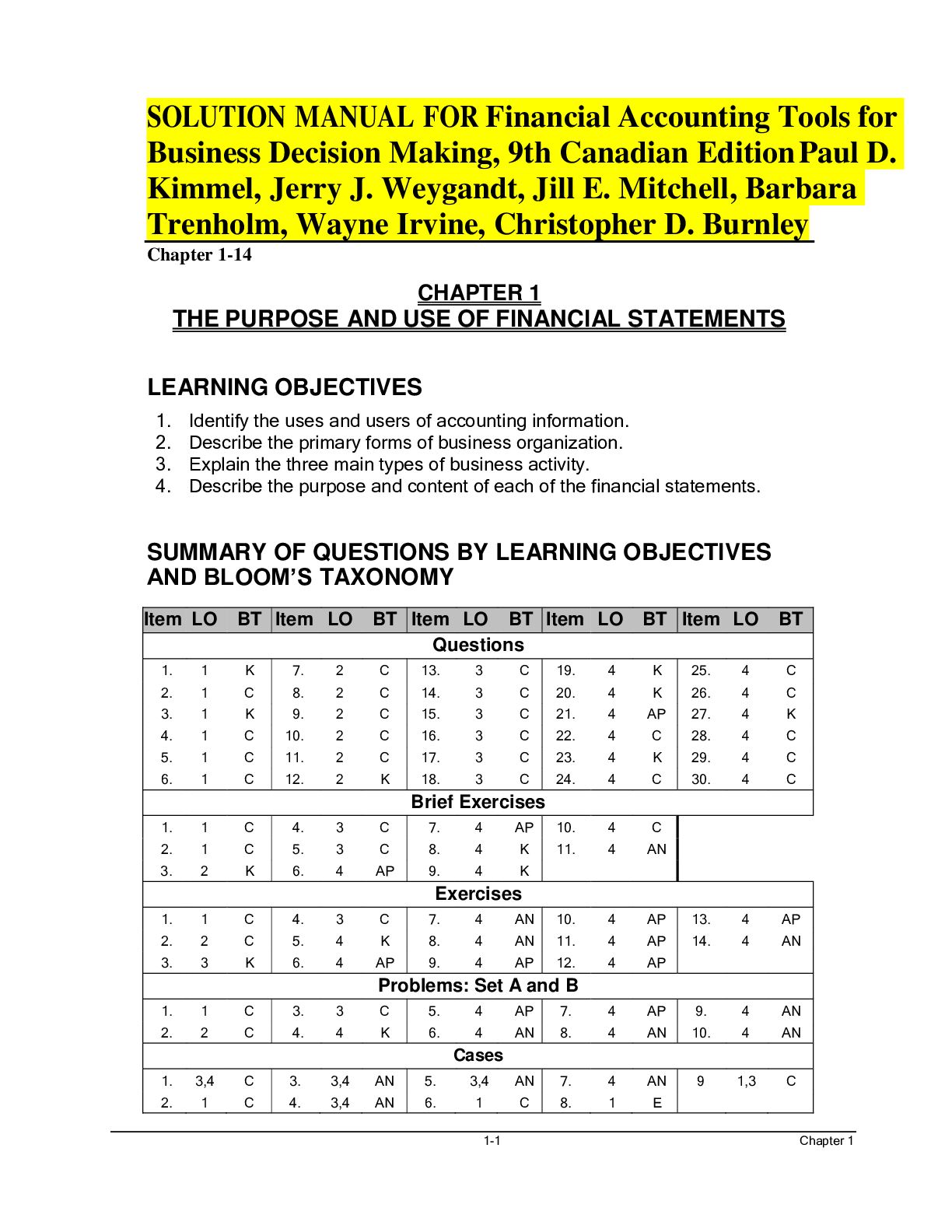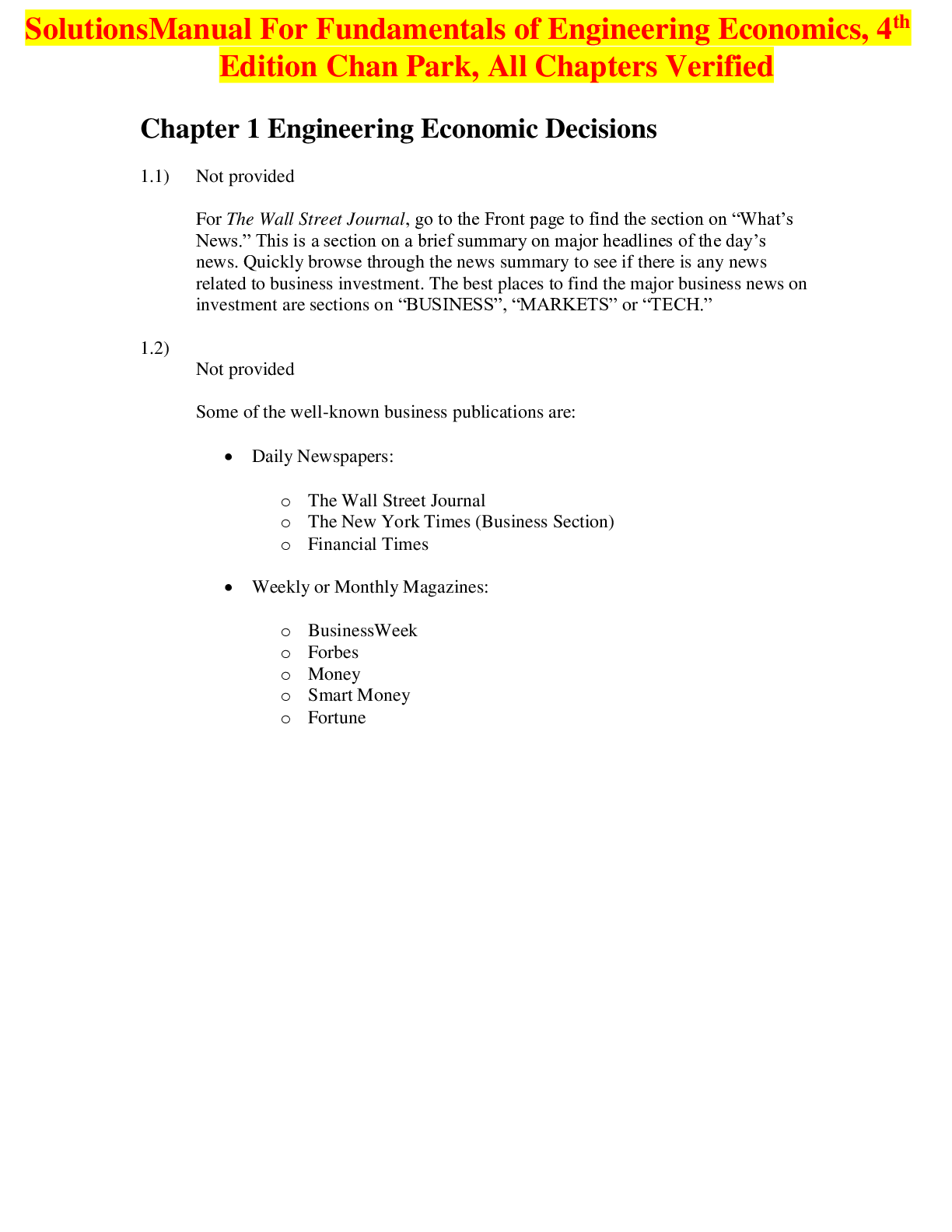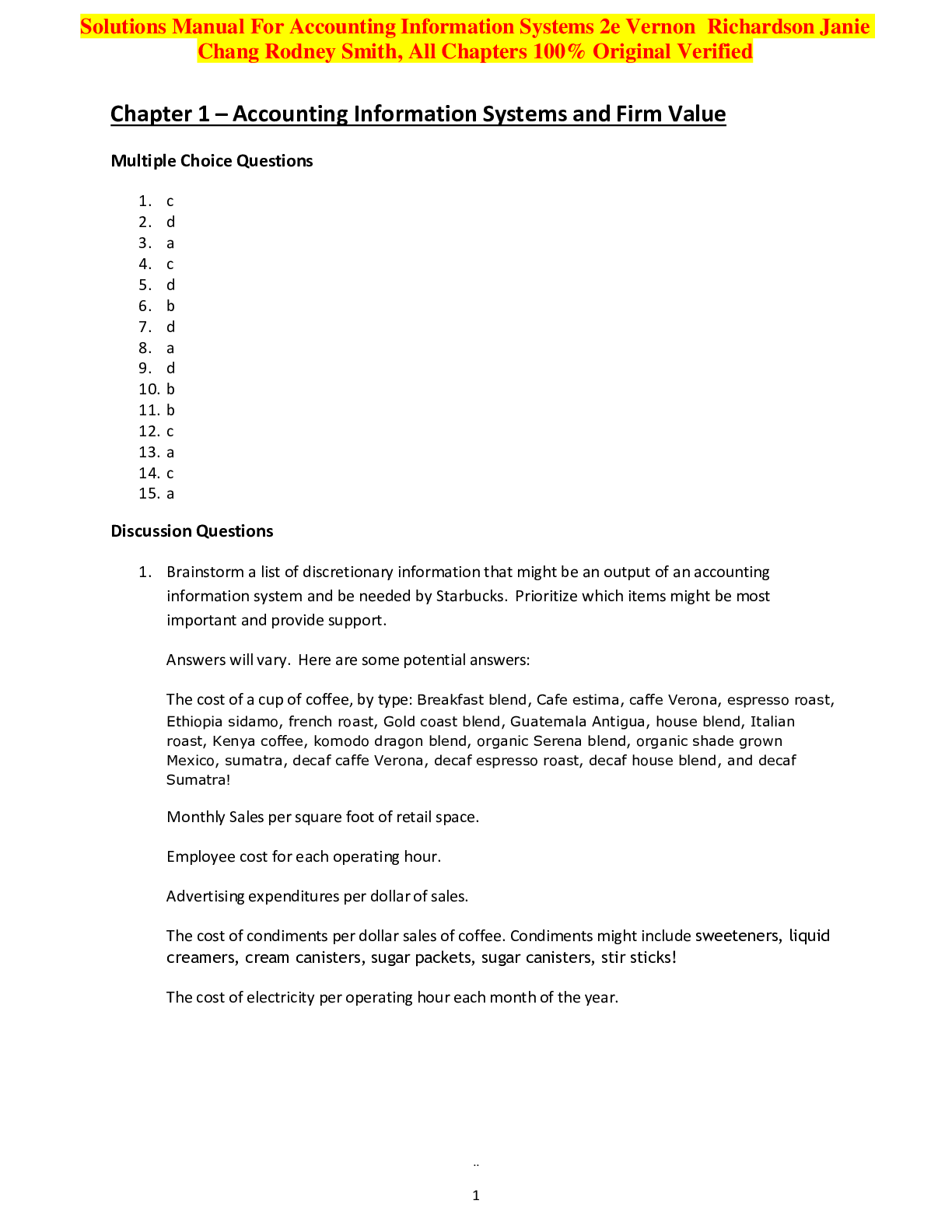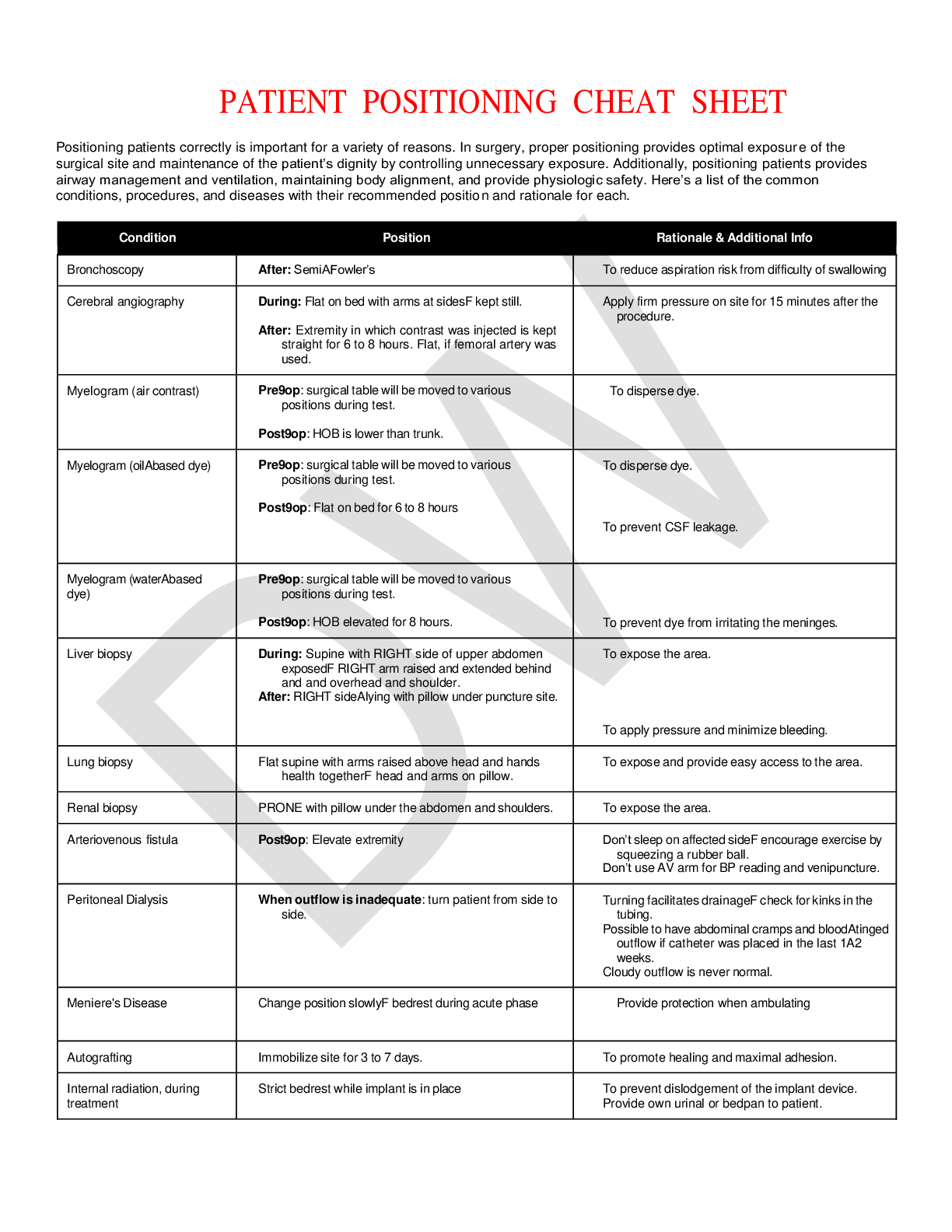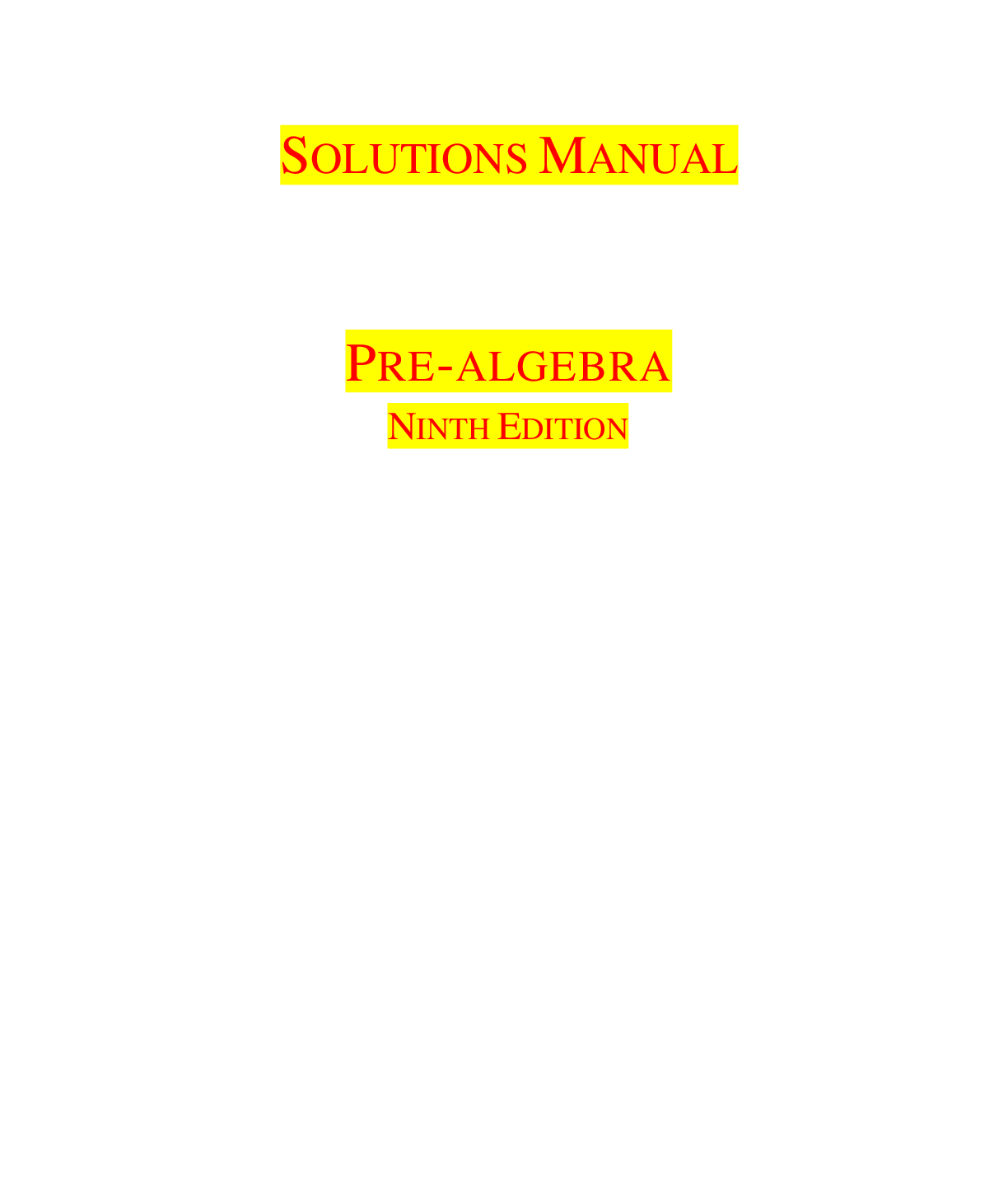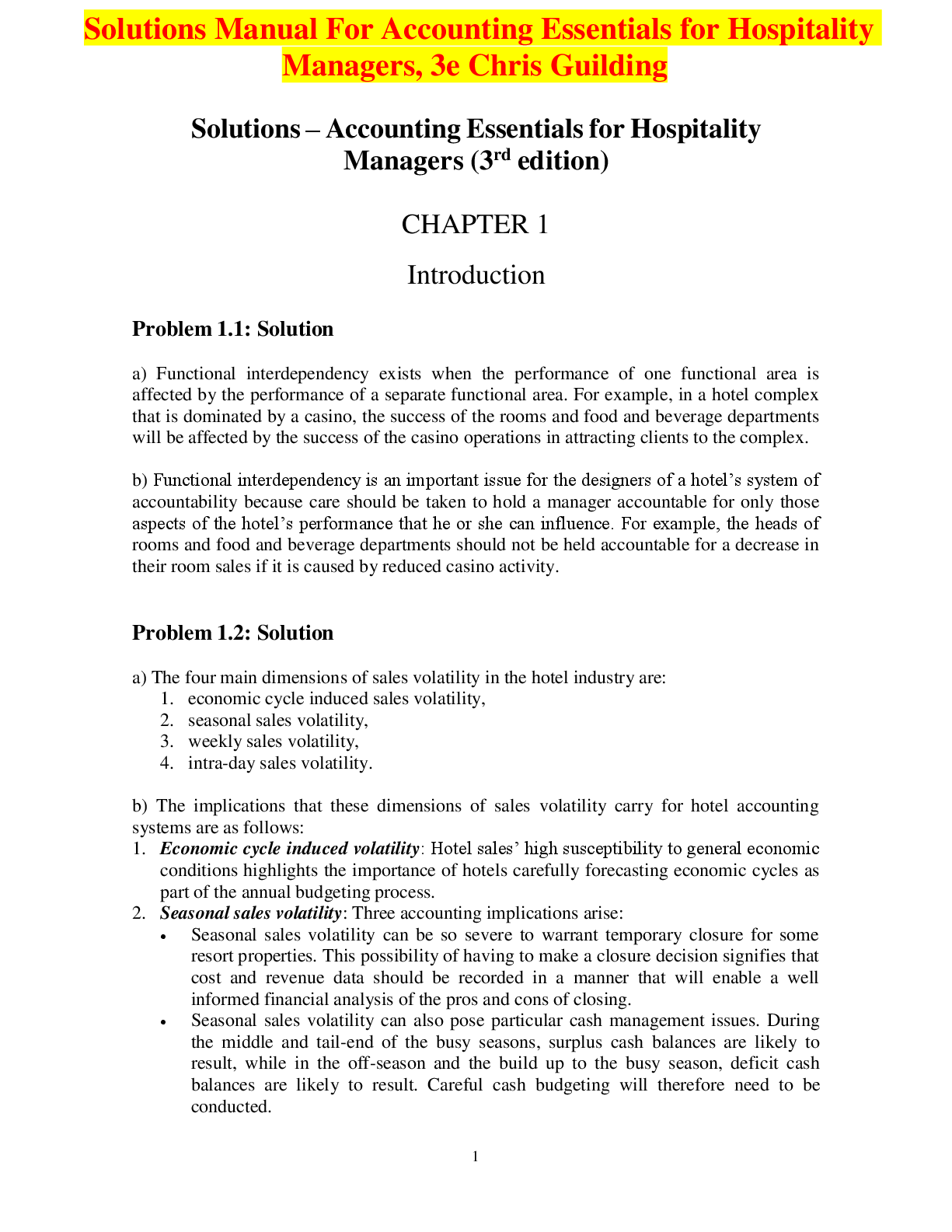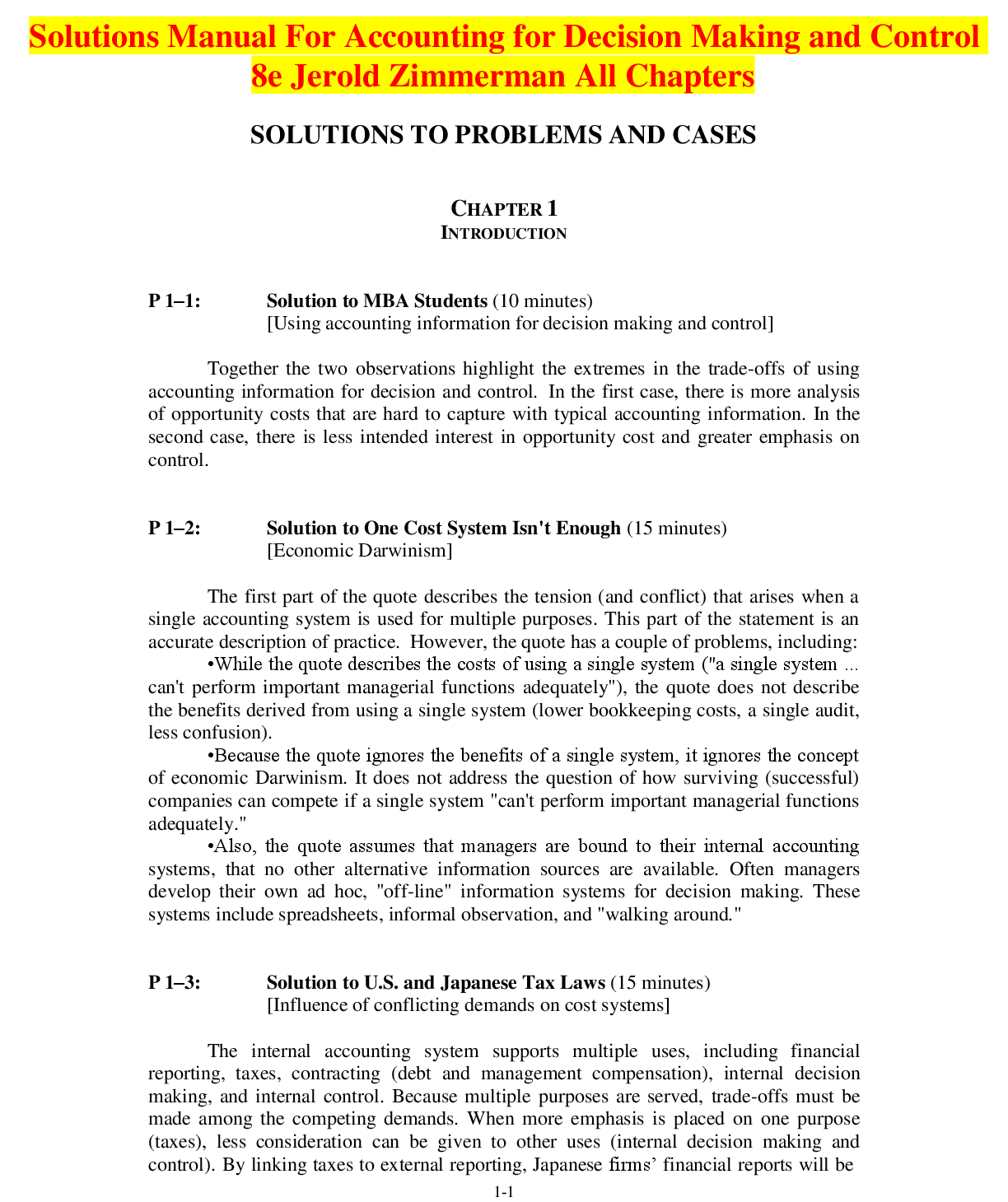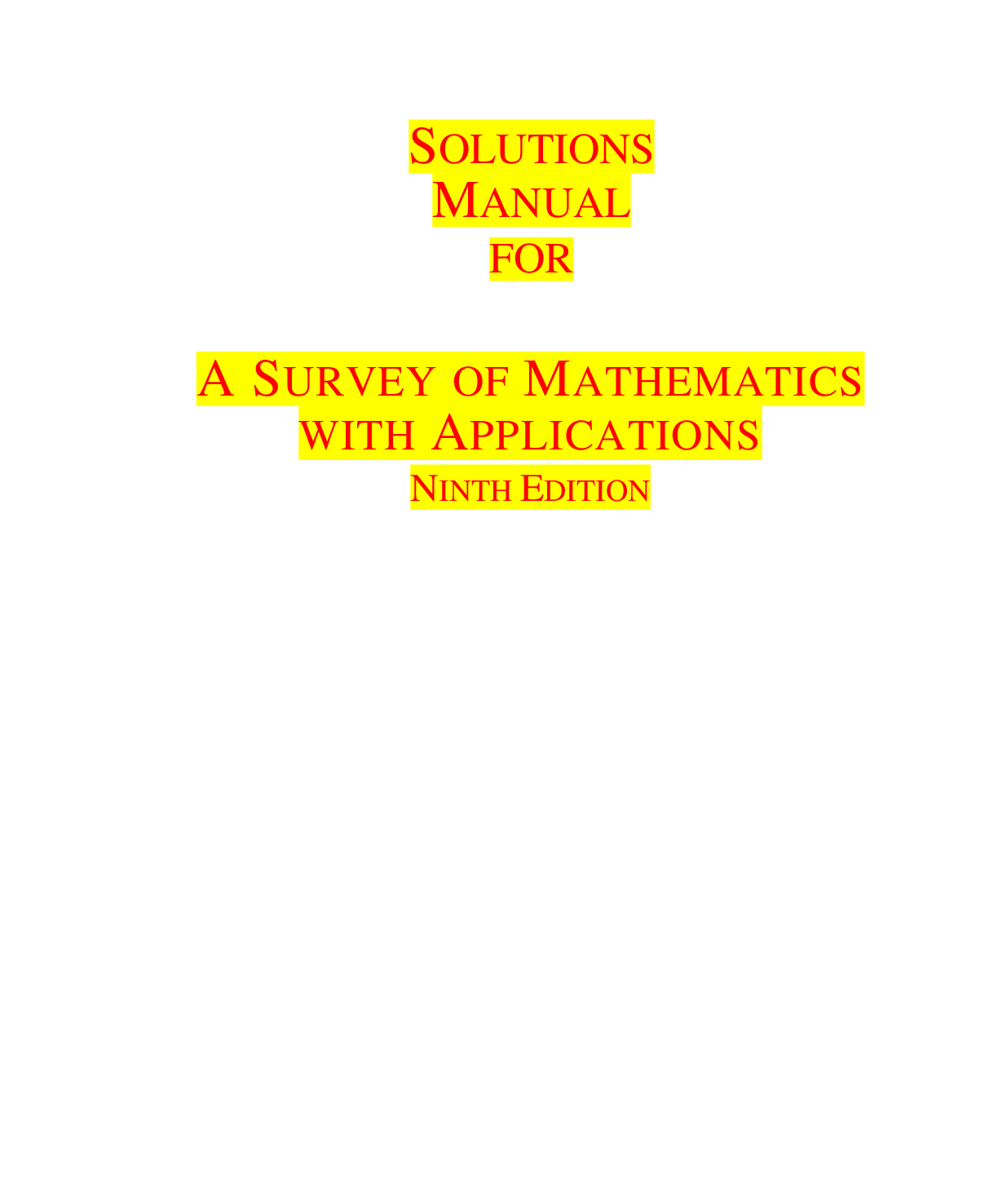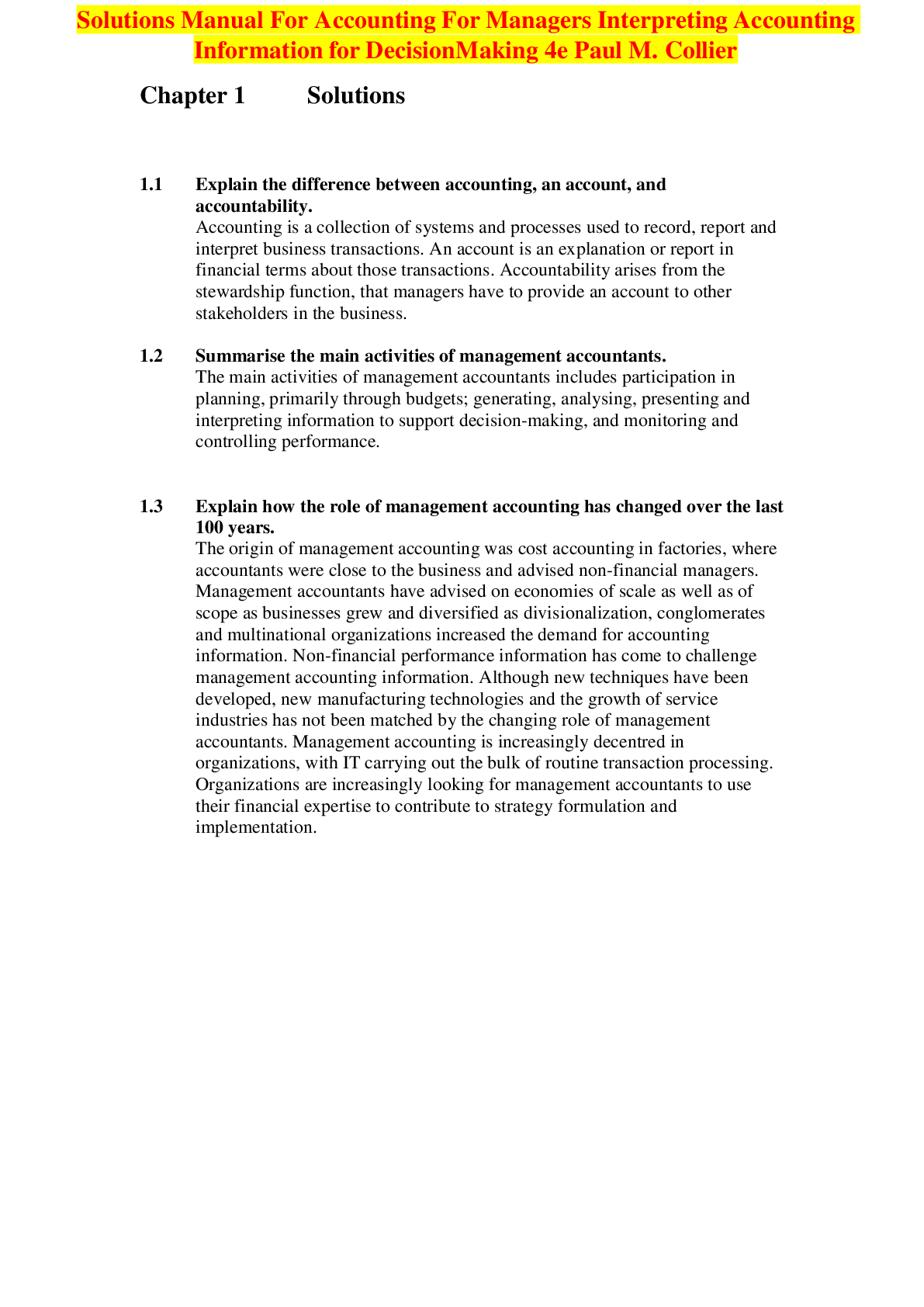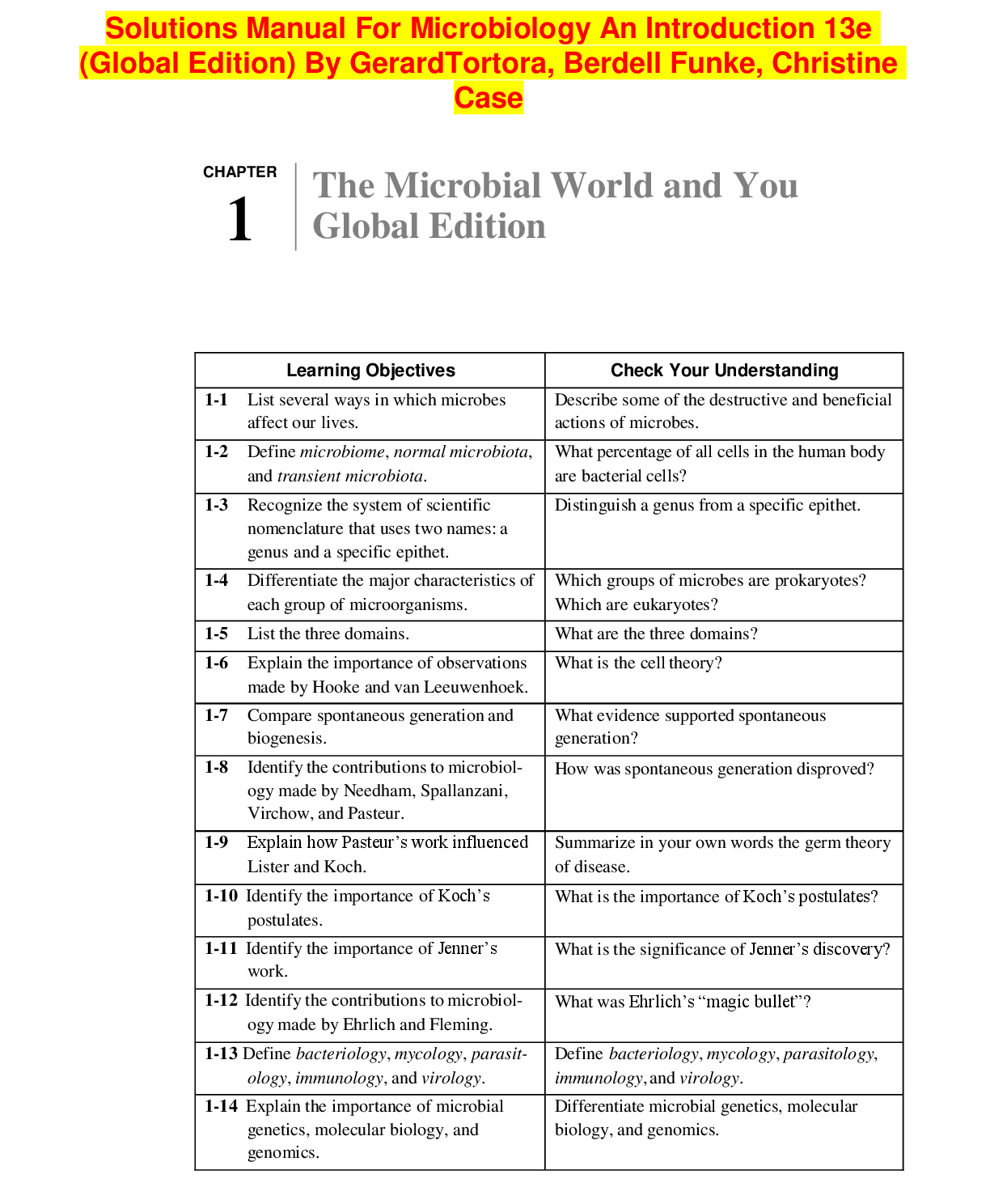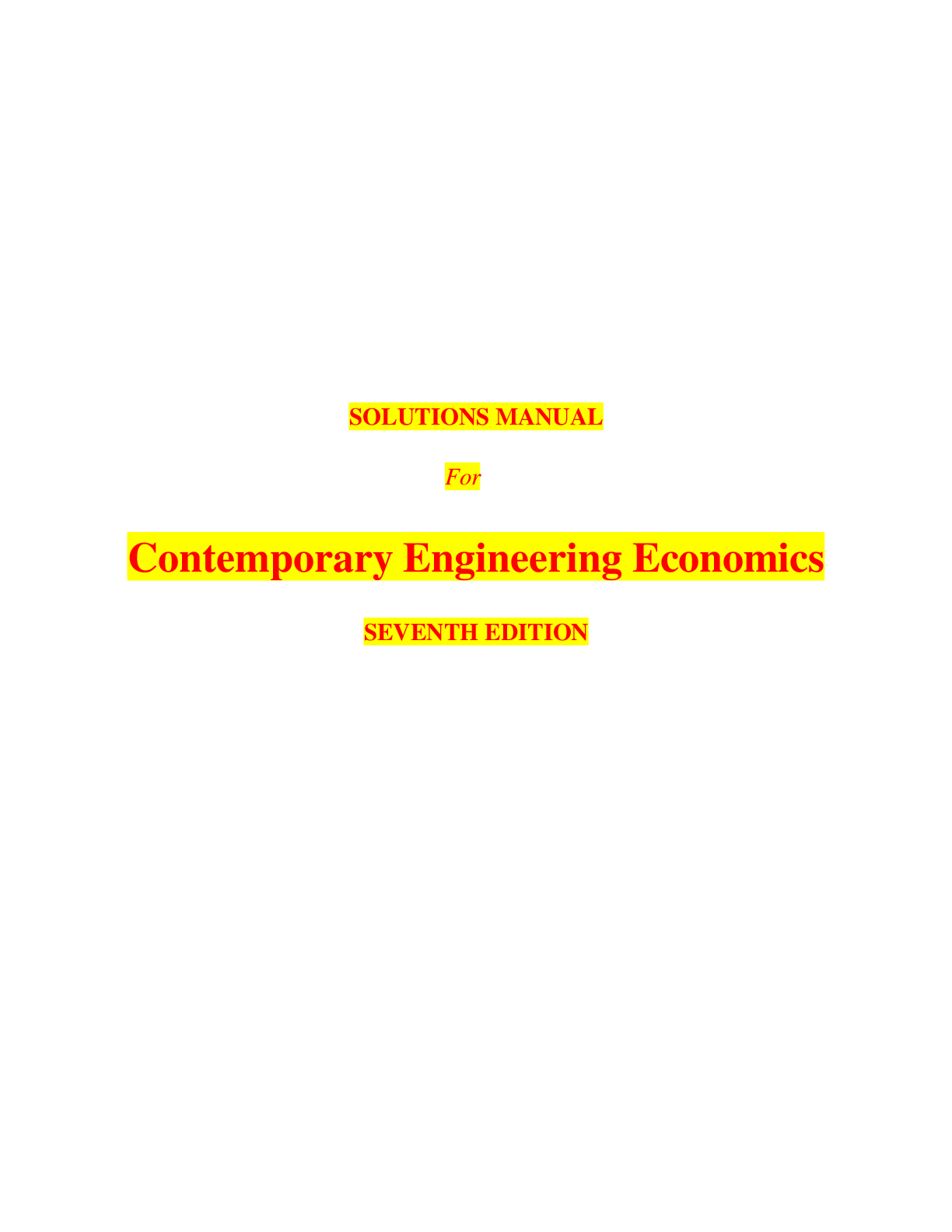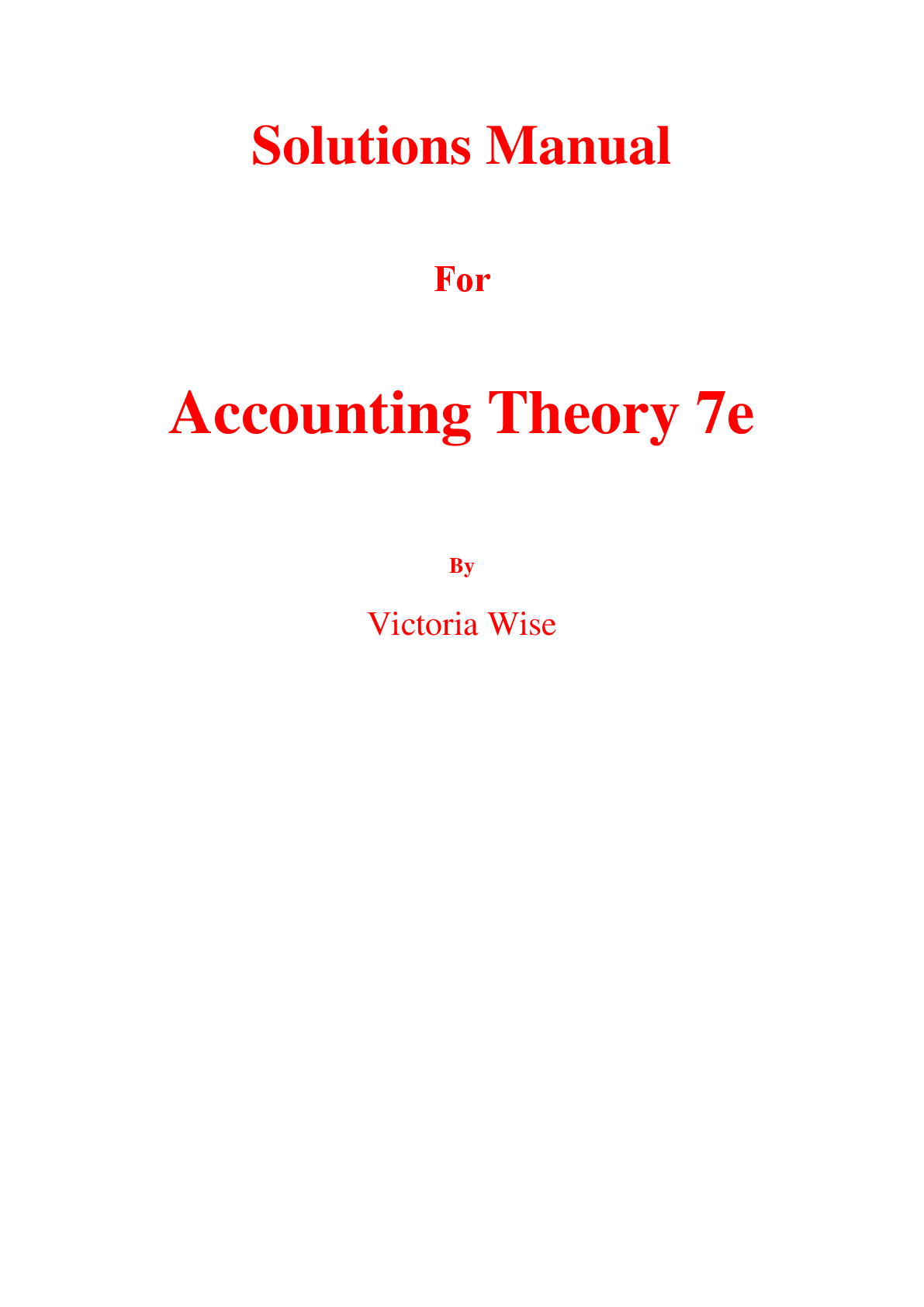Education > SOLUTIONS MANUAL > Instructor Manual For Accounting Theory, Conceptual Issues in a Political and Economic Environment 8 (All)
Instructor Manual For Accounting Theory, Conceptual Issues in a Political and Economic Environment 8e Harry Wolk James Dodd John Rozycki
Document Content and Description Below
Instructor Manual For Accounting Theory, Conceptual Issues in a Political and Economic Environment 8e Harry Wolk James Dodd John Rozycki-The chapter is concerned with what accounting theory is and whe... re it fits within the “structure” of financial accounting. The definition of accounting theory used in this chapter is broad and complements the objectives of the text. Theory itself helps to explain and predict phenomena that exist in a given field, and this likewise holds true in accounting. In accounting, theory can be developed in response to needs arising from practice, including concepts such as realization and matching. However, as an “infrastructure” has developed in financial accounting, theory is formulated in a more institutionalized way by means of the research process. Along with political factors and economic conditions, accounting theory contributes to the standard-setting process. The process of developing standards or making rules is itself largely a deductive process and is certainly concerned with accounting theory. The relationship of theory to measurement is very important. While some see measurement as closely related to but separate from theory (as we did in earlier editions), its importance relative to theory is so great that we now consider it to be part of theory. Measurement is the assignment of numbers to the attributes or properties of objects being measured. The different types of measurements and the quality or “goodness” of measurements are examined. The latter embodies (1) the usefulness of the measurement, illustrated here in a predictive context but showing up later in an assessment mode and (2) verifiability or objectivity, which is the degree of consensus among measurers in the statistical sense. The various valuation models are presented in Appendix 1-A. The models come under the scope of accounting theory. In addition, the different models are mentioned in several theory chapters before being discussed in depth in Chapter 14. Even if there is no desire to go further into inflation accounting in Chapter 14, it is important for students to gain a rudimentary grasp of the concepts involved, as illustrated in Appendix 1-A. QUESTIONS The term social reality pertains to the measurement of social phenomena and the use of these measurements. The measurements may be representationally faithful (low in bias) and have a high degree of objectivity (verifiability). Or the opposite for either or both of these qualities may be the case. The important thing to grasp, however, is that important consequences stem from the measurement, whether they are “good” or “bad.” For example, an excellent year in terms of income could cause management to be highly rated by shareholders and other interested parties, resulting in high management bonuses, or provide increased dividends to shareholders. All of this could occur even though income is a “construct”: not a “real” factor but a conceptual artifact. This example shows why accounting is an important area relative to social reality measurements and constructs. Hopefully, accounting theory can improve the fairness and usefulness of these measurements. Instructor’s Manual Accounting Theory (8th edition) Page 2 of 14 Of the three inputs to the accounting policy-making function, which do you think is the most important? Q-3 How can political factors be an input into accounting policy-making if the latter is concerned with governing and making the rules for financial accounting? Q-4 Is accounting theory, as the term is defined in this text, exclusively developed and refined through the research process? Q-5 These are examples of different concepts involved with measuring income which have different underlying purposes. These different purposes—which affect social reality—are discussed in the appendix. Of the three inputs (economic conditions, political factors, and accounting theory) to the policymaking function, economic conditions is clearly the most important input. Economic conditions can easily influence the accounting theory track as well as the policy-making function. Inflation, for example, in the USA during the 1970s and 80s triggered a significant amount of theoretical work. Theory responded to the actual economic environment. Another prominent example of the influence economic conditions has is the merger and acquisition wave of the 1960s, which lead to APB Opinion Nos. 16 and 17. Many other standards have also been triggered by economic conditions. Those who are affected by the rules will usually try to influence what those rules will be. The investment tax credit provides an excellent example. When APB Opinion No. 2 did not allow flow through, lobbying led to APB Opinion No. 4, which did allow immediate recognition in income of investment tax credits. The stock option battles of the 1990’s (and continuing today) is another example of the political process and its effect on rule-making. From a predictive standpoint, we are concerned with how and why political factors play a role in the standardsetting process. Absolutely not. Many concepts such as conservatism and revenue recognition arose on a “common law” type of basis. They were responses to particular problems. Research has, of course, dealt with these issues. Any attempt to leave these concepts outside of the definition of accounting theory would make the subject matter of accounting theory artificial and incomplete [Show More]
Last updated: 6 months ago
Preview 5 out of 219 pages

Loading document previews ...
Buy this document to get the full access instantly
Instant Download Access after purchase
Buy NowInstant download
We Accept:

Reviews( 0 )
$14.50
Can't find what you want? Try our AI powered Search
Document information
Connected school, study & course
About the document
Uploaded On
Dec 02, 2024
Number of pages
219
Written in
Additional information
This document has been written for:
Uploaded
Dec 02, 2024
Downloads
0
Views
11

